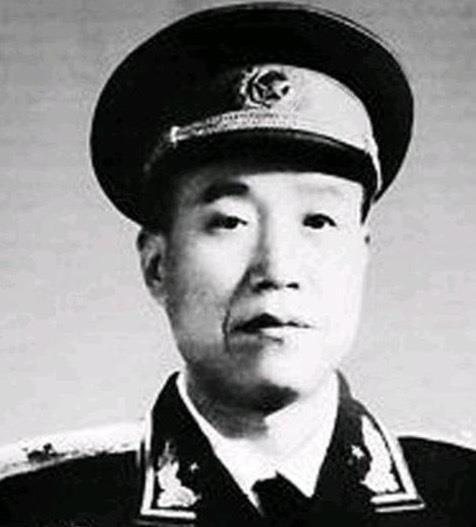In 1985, in order to solve the problem of the "bloat" of the troops and at the same time shift the focus to economic construction, disarmament began nationwide. In addition to reducing staffing, the staffing establishment should also be streamlined. At that time, there were eleven major military regions in the country, and after study and discussion, it was finally decided to abolish the four major military regions, and the Urumqi Military Region was prominently listed.
The Urumqi Military Region, formerly known as the Xinjiang Military Region, is located on the northwest border of the motherland, with a vast territory, and was upgraded to a large military region in 1955. However, in 1985, the Urumqi Military Region merged with the Lanzhou Military Region and established the Xinjiang Military Region (corps level). As a large military region, the Urumqi Military Region has existed for thirty years, during which the commanders have changed a lot, and all of them are great heroes with outstanding merits. In particular, the last commander, who became a founding major general at the age of 39, also fought with the US and Soviet armies, this person is Xiao Quanfu.

Xiao Quanfu, born in 1916, is a native of Jinzhai, Anhui. As we all know, Jinzhai is located in the hinterland of Dabie Mountain, is a well-known general county in China, and established a revolutionary regime very early. In such a big environment, Xiao Quanfu joined the Red Army at the age of 14 and began his career as a horseman. Although he was young, he was very capable, and at the age of 16, he was transferred to the pistol team of the Headquarters of the Red Fourth Front as a platoon leader, and also participated in the 25,000-mile long march.
After the outbreak of the War of Resistance Against Japanese Aggression, Xiao Quanfu first studied at the Anti-Japanese War, and soon came to the front line to command the operation, serving as the chief of staff of the military sub-district. During the Liberation War, Xiao Quanfu rushed to the northeast and became a division commander in Siye, and he led his troops to participate in the battles of Liaoshen, Tianjin, and Hengbao, from the White Mountains and Black Water to the southern end of the motherland, with great merit.
After the founding of the People's Republic of China, Xiao Quanfu was promoted to the commander of the 46th Army, and it is worth mentioning that he was also one of the few generals in our army who fought with the US and Soviet armies. In 1952, Xiao Quanfu led the 46th Army into the Korean War, succeeding the 42nd Army in the defense of the West Coast, during which he participated in the Summer Offensive Campaign and attended the signing ceremony of the Panmunjom Armistice as a representative of the front-line troops of the Volunteer Army. After returning from the victory of North Korea, Xiao Quanfu entered the Nanjing Military Academy for further study, and at the 55-year award ceremony, he became the founding major general, when he was only 39 years old, at a time when he was young and strong, and the future was bright.
In February 1969, Xiao Quanfu was appointed deputy commander and chief of staff of the Shenyang Military Region, in charge of operations and training. During this period, Sino-Soviet relations continued to deteriorate, and the situation on the northeast border was very tense. In March of the same year, the Battle of Zhenbao Island broke out, Xiao Quanfu, as the commander-in-chief of the front line, commanded this great war that shocked China and foreign countries, and the border defense troops of our army fought back, crushed all the enemies who attacked, drove the Soviet army out of Zhenbao Island, and won the final victory. After this battle, Xiao Quanfu became a well-known general and was praised by his superiors.
By the end of the 1970s, the situation in northern Xinjiang was becoming tense, and there was an urgent need for a tough general to go to the town to guard. In 1980, Xiao Quanfu, who had experienced hundreds of battles, was originally appointed commander of the Jinan Military Region, but he was urgently transferred to Xinjiang as the commander of the Urumqi Military Region. After Xiao Quanfu arrived in Xinjiang, he quickly stabilized the situation, and Yang Dezhi, who was then the chief of the general staff, also praised him for "the momentum of the year!" ”
After Xiao Quanfu took charge of the Urumqi Military Region for five years, after encountering disarmament in 85 years and receiving an order from the military region to be revoked, he resolutely obeyed the arrangement, stood on the last shift and retired to the second line, was elected as a member of the Central Advisory Committee, and continued to show concern for national construction.